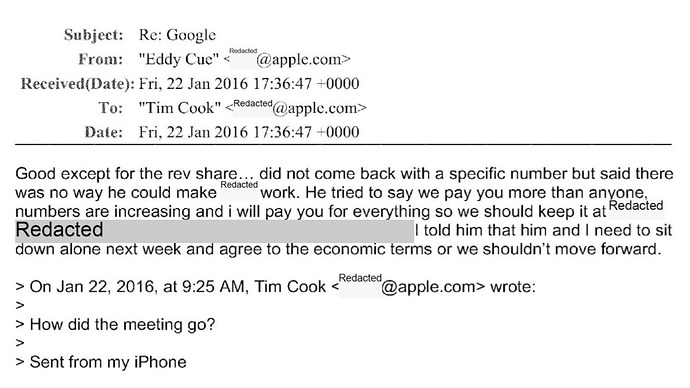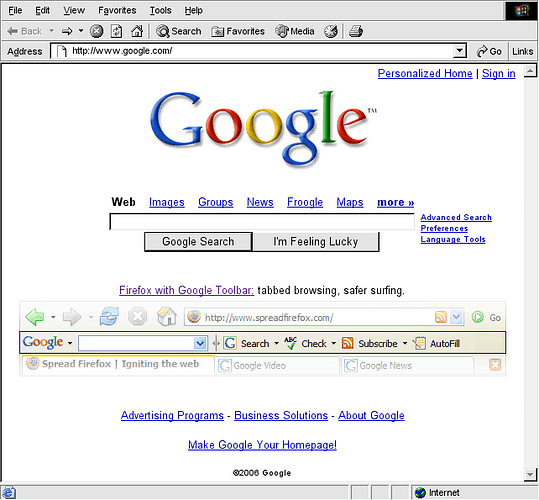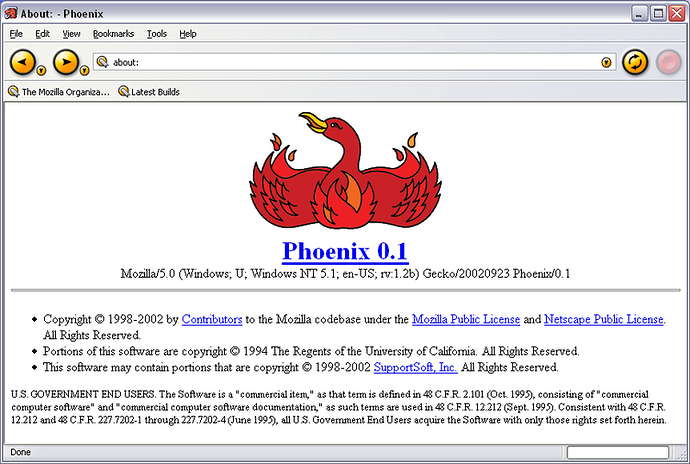The DOJ case was filed in October 2020, when Google published “Our $1 billion investment in partnerships with news publishers”. Did Microsoft make such an “investment”?
I don’t have the answer to why the media doesn’t cover the trial or any special information about newsrooms suppressing their coverage in order to please Google.
Instead, I guess my mind fast-forwards to the conclusion.
An opaque, top-down organization is bad. The absence of information is itself information. And I trust that people intuitively know that Google is bad for them. But, there is no convenient alternative: no d’Artagnan to Google’s Cardinal Richelieu. Instead, at this moment, they’ll have to trade convenience for independence. Most people won’t do that. And, this generation of auto-complete AI is just pushing consumer sentiment further toward convenience.
There things will stay until attitudes change and society responds to the needs for competition and privacy.
And my personal opinion is companies act more responsibly when they have a significant number of ordinary workers on their boards. Increasing the number of stakeholders across society can only help with these issues.
Interesting testimony from a small search company, Branch Metrics.
Austin described the initial mission that Branch focused on: building a search engine for apps that would allow users to pull up specific app pages from search queries through “deep linking” technology. For example, if you searched for “Pizza” on a Branch-integrated search bar, you would get results that brought you directly to pizza-related pages on apps you might own like Yelp or UberEats, as well as suggestions for apps that you hadn’t yet downloaded.
But Austin and his team soon discovered a familiar barrier: Google’s search engine default agreements. […] Branch pivoted by developing an “offline” device search.
This offline search was a severely limited version of Branch’s initial product. According to Austin, it also meant that Samsung restricted Branch to searching a pre-set list of about 25 apps, because Samsung needed to be able to manually verify that none of the deep links to those apps connected to the web.
Branch sounds pretty cool. It seems a lot like GNOME’s desktop search or macOS’s spotlight search, but far more powerful. It’s a shame that Google’s anti-competitive contracts limited the service, but honestly, I would prefer this to be offline-only.
The DOJ is posting the exhibits online again. They’re giving Google 3 hours to confirm it doesn’t violate their confidentiality before posting them.
Does anybody know what the “government shutdown” is all about? The article doesn’t provide much context.
Edit: Ah, right. The debt ceiling thing. I guess you all can tell how little news I read now ![]()
I’m not going to summarize every bigtechontrial article, don’t worry ![]()
There are some interesting revelations from Microsoft, but the really interesting and reassuring news today is the sudden commitment to openness in the trial from Judge Mehta.
Today, Judge Mehta repeatedly asked lawyers for both sides to do as much of their questioning in open court as possible. At one point when the DOJ lawyer said she had asked everything she could in public, Judge Mehta asked her to “take another look” during lunch and confer with Microsoft’s counsel to figure out how much more of her direct examination could be public.
Sure enough, the DOJ attorney had more questions in open court when the trial resumed after lunch. And as the day ended, Judge Mehta announced that he wants Microsoft CEO Satya Nadella’s testimony next Monday to be as open as possible.
Today he even said that he would be unsealing portions of testimony from previous closed sessions with key witnesses like Apple executives John Giannandrea and Eddy Cue. The DOJ never asked Judge Mehta to do this, at least in any public session. The noticeable shift towards increased public access is largely coming directly from the bench.
Thanks again for linking me to them, @Josh. Their coverage is significantly better than the other news outlets’ coverage I’ve had the opportunity to read. I’ve learned some stuff about how antitrust works too. The parent organization, BIG, has some other interesting articles like this one: A Church Software Roll-Up - BIG by Matt Stoller
Despite not being big on the news, I’ve actually purchased a subscription. I’m interested in the ongoing FTC case against Amazon too. This is the first time I’ve ever paid for journalism. I don’t know if I want to make that a habit…
Exhibits are coming back online.
Here’s a gem found by Jason Kint; “I will pay you for everything …”
Jason has a thread of Google internal message quotes here on Twitter. I picked out a few for you here:
- “we don’t have better algorithms we just have more data”
- “Chrome exists to serve Google search…if it is regulated or set by the user, the value of users using Chrome goes to almost zero.”
- “This allows more and more to start acting as one unit to the market”
- “Without the exclusivity, we are not ‘getting’ anything. Without an exclusive search deal, a large carrier can and will ship alternatives to Google (as seen with Verizon, AT&T, and America Movil).”
- “I think this approach is really important otherwise Bing or Yahoo can come and steal away our Android search distribution at any time, thus removing value of entering into contracts with them. Our philosophy is that we are paying revenue share in return for exclusivity.”
It might be worth examining the underlying PDF. Most people don’t know PDFs are based on PostScript and vectors. So, those redactions might just be overlaid graphics. And the underlying scans or text are still in the file.
Related:
The DOJ has rested their case. It’s Google’s turn to defend themselves.
(although we’ll hear from some more witnesses called by the States first, apparently)
Much of DOJ’s questioning of Pichai on cross focused on a never-before-seen letter that Google’s then-chief lawyer David Drummond sent to his counterpart at Microsoft in 2005 when Microsoft was testing a new version of its browser: Internet Explorer 7. The letter accused Microsoft of engaging in behavior very similar to the conduct that Google is currently on trial for.
“We are deeply concerned about the potential for harm to the competitive process from Microsoft’s actions, particularly given Microsoft’s monopoly position with its Windows OS and its Internet Explorer browser.”
“By pushing out an update of Internet Explorer with a new search box that will default to Microsoft’s own search product in the vast majority of cases, Microsoft would gain a large number of search users for reasons having nothing to do with the merits of Microsoft’s search offering.”
The letter also mentioned Google’s proposal to Microsoft that it should instead prompt users to select a default search provider the first time they use the in-line search feature.
This was too good not to share.
The article contains quite a lot of interesting discussion aside from this, like Google’s “History-off Chats”, and the total amount of money Google pays for exclusive search distribution deals (spoiler: it’s huge) and which search terms generate the most revenue for Google.
If there’s one article to read, it’s this one.
The Big Tech on Trial ![]() has been a cut above in terms of coverage. That whole segment is very by your own logic…
has been a cut above in terms of coverage. That whole segment is very by your own logic…
Google will argue that there are important differences between its default deals now and Microsoft’s use of defaults in Internet Explorer back then
I can think of one very important difference, for Google that is.
Yet another interesting testimony, this time from Mozilla defending Google:
The next witness, Mozilla CEO Mitchell Baker, came out even stronger in defense of the default deals Mozilla and Google have made for the Firefox browser. Baker testified that the “bulk” of Mozilla’s revenue comes from search revenue and the “bulk” of Mozilla’s search revenue comes from Google. She added that Mozilla’s search revenue has funded the development of Mozilla products other than its Firefox browser. She didn’t go as far as to say this, but it seems quite possible that losing the “hundreds of millions of dollars” that Mozilla receives from Google annually would pose an existential threat to the open-source developer of Firebox.
You get three guesses as to why the CEO of Mozilla thinks poorly of Microsoft:
Baker contrasted this approach to that of Microsoft — and she said that having Microsoft as the “only possible partner” would be a “death spiral.” She explained: “When Microsoft has a power of market, it is not a good partner….It overrides users in order to make it harder for people to use Firefox, and switch away from Bing.”
Mozilla’s argument is that Google is a benevolent dictator. I suppose there’s no substitute for first-hand experience, but calling Google the lesser of two evils is not exactly a glowing recommendation.
In case anyone missed it, Google’s chief lawyer for this case, Kent Walker, formerly represented Netscape for 4 years between 1997 and 2001 during a certain antitrust case. John Schmidtlein was similarly involved in the case.
If you know your history, this scene may seem surreal to you.
Pre-Chrome browser, Firefox once had a decent market share. But I don’t think Google paying Mozilla to make Google the default search is completely altruistic: 1. back in the browser wars days it helped put the screws to Microsoft, 2. it made Google look good to be supporting open source software, and 3. today it helps Google argue against monopoly accusations.
Sure Google can argue that it isn’t just browsers, but the reality is Google keeps moving higher up the food chain to operating systems: Android, Chrome OS, and with payola defaults on Apple’s iOS and macOS. Google search gets baked into or mandated by the few commercially viable operating systems left standing.
We’ve come a long way from Google advertising Firefox on their front page:
Another, more straightforward advertisement.
Mozilla and Google have been partners for a long time.
100%, I think number 3 is probably even more of an aspect now that Edge is Chromium.
It’s one of the difficult parts, to me, of arguing for Firefox and parts of the Firefox Extended Universe with non-techie friends. Really any argument for Firefox on my part is an argument for Gecko to still be a thing into the future - frequently I get questions with obvious answers like “what about Brave, Opera etc.?” (not to do down alternatives but another engine has to be viable).
I doubt there would be a chance of another engine coming into the mix, so it’s Gecko that must be defended - in my eyes.
If it’s going to be any independent browser, my money is on Ladybird. The SerenityOS team is crazy passionate about the work they do, and they’ve accomplished so much in such a short period of time. They even have two full-time developers paid to work on Ladybird. Shopify donated $100,000 USD to Ladybird development, and Ladybird has received another two $100,000 donations from anonymous sources, for what it’s worth.
Mojeek is even in the default list of search engines for Ladybird (I compiled it myself to check; it took about 20-30 minutes). Though I know you already know this ![]()
You can see Andreas Kling’s write-up about how they’re building a browser when that’s supposed to be impossible here, improving the W3C specs along the way. Andreas Kling actually worked on Webkit/Safari for a few years at Apple, so he has professional experience with browsers.
Of course, Ladybird is hardly ready to compete with the likes of Firefox, Chrome, and Safari…but in a few years, who knows? I’m pretty optimistic about it. These are the kind of people that make you feel like you really can do anything you want with enough passion. Well, assuming watching streaming services like Netflix isn’t part of their goals and Google doesn’t block their browser from using Widevine.
That being said, I think Firefox is a great desktop browser and I’ve already written extensively about why I feel that way. The Gecko engine is part of the equation, but it’s not the only thing I like more about Firefox. I actually do think it’s a better browser. It’ll always be my first choice unless Ladybird rises up.
Today, a baffling testimony from Google’s final witness, an economist. He unwittingly (?) revealed that Apple is paid 36% of Google’s ad revenue derived from their default search deal, upsetting Google’s top lawyer. He then argued that Google is a monopoly, but that this is good for users.
He then said…well, this:
“You don’t want to think of more privacy as necessarily better. Privacy is good, but it comes at a tradeoff of higher quality.” He testified that “choice screens” that allow consumers to choose their search engine out of the box are bad for competition and “do not reflect a rational business practice.” He argued that consumers don’t actually want to make decisions, with the inverse implication that monopoly corporations like Google should make those decisions for them.
So, that wraps up Google’s defense. The DOJ will have another week to make a rebuttal case, and then it looks like the trial will be over. At least until Judge Mehta makes a decision.
The evidentiary trial of US v Google concluded after 42 days.
Judge Mehta ended the day by wishing all parties a happy thanksgiving, saying: “I can tell you today, I have no idea what I’m going to do.”
Matt Stoller: “Judge Mehta delayed the closing arguments for six months because he doesn’t want to act. That’s six more months of harm just because he’s afraid.”
What are we looking for here in terms of a verdict and remedies?
I’ve made no secret about not liking or trusting Google for the last 20 years so I’m rooting for the long shot option of the Court breaking up Google even if that means Google’s demise. Most people panic at the thought of a Web without Google search, thinking it will result in chaos. And it will for a short time, but nature abhors a vacuum and other search engines will spring up to fill that vacuum very quickly.
However, even if the verdict goes against Google, i think a true breakup of Google, ala Standard Oil, is a long shot because we no longer live in a world of bold Homeric actions. We live in a world of tepid mediocre bureaucratic incrementalism. In short: I don’t think anyone has the guts.
But short of breakup, if somebody can find a way of making sure Google is no longer a threat to the Web, I’m all ears.
The American body politic won’t be happy until society implodes. They won’t tolerate problem-solving or effective action before then. Competition is too far down the list of crises.



